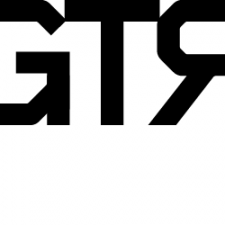The Global top Round Conference took place in Lulea, Swedish Lapland last week, the main focus being to choose the ten games that would go through onto their Business Acceleration Program. There were plenty of interesting presentations from expert speakers too, and the discussion about pitching to publishers was particularly informative.
Joshua Garrity, Head Game Scout at Secret Mode, has been working in the video game industry since 2015, first as a Product Manager and then in Business Development roles. He is currently a Senior Game Scout at Team17, listening to and seeking out pitches for projects that Team17 could potentially sign to their label. Joshua has been responsible for the signing of titles such as Gord and Batora: Lost Haven at Team17.
Yves le Yaouanq is Chief Content Officer for Focus Entertainment. He started 25 years ago in the games industry, working on MUDs & MMORPGs, and spent 11 years at Ubisoft in strategic positions, building bridges with indie developers. In 2021, he joined Focus Entertainment as Chief Content Officer, to lead the Publishing and Acquisition Portfolio transformation, welcoming new games and studios from across the world.
What is your favourite breakout indie title?
Joshua: Tunic, it didn’t follow all the trends and identified an appetite for something Zelda-esque but added its own unique twist,plus it had unique art direction.
Yves: Citizen Sleeper.
Is there a recipe for successful indie games?
Yves: Obviously there is no recipe for success or everybody would be doing that. Being market relevant at the right time, being passionate and knowing your audience, and keeping your vision while in line with the market are the main things, all else can be fine tuned.
How do you find your target market?
Joshua: Developers always over-egg it, and go for the widest possible audience. I prefer it when developers are realistic with the specificity of their audience. Be honest, publishers are more likely to engage with a pitch when there’s a niche audience but you also have reasons as to why this will work - show me you’ve done your research!
What services do you provide?
Yves: Everything, really. Everything is done internally, so we can fine tune what is needed in terms of publishing services. But we are not just a money bag, we provide services and expertise as well.
Joshua: We are a publisher made by developers - so our services are specifically made with what they would want from a partner in mind. In terms of services, we provide pretty much everything from QA to production support and localisation, and we can tailor support to the needs of each individual case.
What are the biggest pitch mistakes you see?
Joshua: Developers over developing the visuals and not focusing enough on the core of the game.
Yves: Don’t start with the lore in the pitch deck...
Joshua: 100% that!
Yves: ...and don’t use benchmarks like, 'it’s somewhere between X and Y so we are expecting to make 30 million' [shakes head].
What’s your opinion on paper pitches?
Joshua: If you have a track record in successful games then maybe I’ll consider it more seriously. It’s worth putting a paper pitch in front of people to get feedback, but set your expectations correctly.
Yves: The industry is probably growing towards prototype funding more, but getting first contact is still good to get feedback, rather than sending pitches out cold.
At what stage should developers pitch to a publisher?
Joshua: When they've got something playable, a plan in place, a budget and schedule in mind. There needs to be some kind of structure and not just a concept.
Yves: Having at least the conception finalised is the core thing. Once that's done we can move together to build up the road map. The less money you spend the better - and also work, work is money. If you are asking for a $2m budget that hasn’t included the work you’ve already done, it's no good. Don’t underestimate the work you’ve put in.
How should developers figure out the perfect figure to pitch for re: budget?
Joshua: How much do you want to get paid? Take into account the budget for your building, what the salaries are. When people say that your budget is too low, what they mean is that it looks too low for the work needed, that you aren’t paying your team enough. If you pay your team what they’re worth, you create loyalty and are more likely to have a successful game.
Yves: It's important to be realistic. We might say no because it’s out of our range, and sometimes we will increase the budget that they were asking for if we can see the potential of the game. Always add 15-20 percent contingency, then look for the publishers that are within your range, which have done similar games in the past also.





















